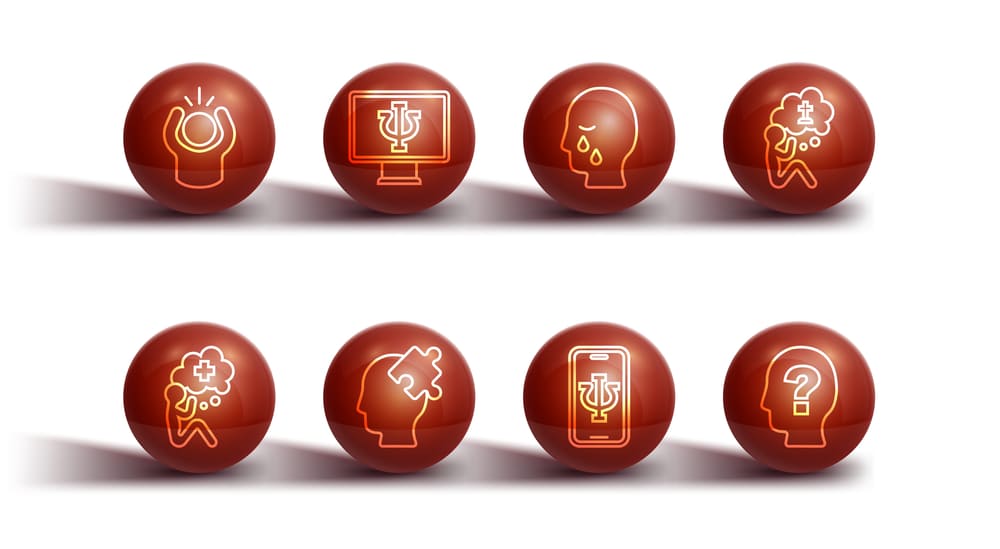Telepsychiatry benefits are offered to both patients and healthcare professionals that increase patient involvement and satisfaction with mental health services. There are a few disadvantages, but all sides should be considered when finding the right approach for you.

What is telemedicine and why is it becoming more and more popular?
Doctors and other healthcare professionals typically treat patients in person at a location like a hospital, clinic, or medical office. But because of computers, smartphones, and other modern digital technologies, doctors can now virtually diagnose, treat, and manage the care of their patients.
Everything from conducting consultations online to remotely checking on patients’ vital signs can be included. Communication can be with the patient and doctor in real time via computer or telephone, or when information is shared and obtained to further assess the health issue. While telemedicine has been used for a number of years, more people are realizing the benefits of telepsychiatry for patients.
What types of healthcare fields offer telemedicine services today?
Besides mental health therapies or consultations with a regular physician, telemedicine can also give some specialty practitioners such as neurologists, allergists, pharmacists, pathologists, and physical therapists, an advantage as it does not require the medical practitioner to meet the patient in person.
Instead, patient information such as medical images, test results, medical history, and all documented information is sent to the specialist as needed for treatment planning, advice, or diagnosis. Specialty telemedicine does not initially involve a physical examination and instead depends on a history report, documented medical information, all test results, and imagery to make an accurate diagnosis and propose the relevant treatment.
What is telepsychiatry and how does it work?
Patients can access online mental health services, psychiatric evaluations and diagnosis, addiction treatment, and individual or family therapy through telepsychiatry, using computers, tablets, or other telecommunications equipment. Patients and their therapists can both gain from telepsychiatry in a number of ways that include easier access to services, privacy, and enhanced comfort, and convenience.
Telepsychiatry Pros and Cons
While telepsychiatry can save time and enable medical professionals to provide their services more thoroughly and offer patients benefits in convenience and cost, there may be some disadvantages and disruptions to an online consultation.
Pro #1: Comfort To Patients
With the use of telepsychiatry, patients with severe anxiety or those who feel uneasy in a professional or strange environment can virtually meet with their therapist from the convenience and security of their own home. Similarly, teletherapy can help individuals with agoraphobia and panic disorders reduce their anxiety when they travel. Sessions may become more therapeutic and fruitful as a result.
Pro #2: Convenience
Teletherapy offers a number of conveniences for mental healthcare providers and their patients. Online therapy eliminates travel and wait times for patients and can reduce scheduling conflicts for therapists. By giving patients scheduling flexibility, telepsychiatry can also help lower the amount of missed or cancelled appointments.
Pro #3: Improved Accessibility
For those who provide mental healthcare as well as their patients, teletherapy offers a number of advantages. For patients, online therapy removes travel and waiting periods, and it can ease therapists’ scheduling issues.
Pro #4: Fewer Delays
Telepsychiatry provides the advantage of minimizing wait times for therapy for all patients, which is beneficial for people who have difficulties attending sessions, such as the elderly or disabled. When used in conjunction with an integrated healthcare system, telepsychiatry enables therapists to immediately communicate information with other mental health care professionals and treat urgent circumstances.
Pro #5: Cost Savings
One of the major benefits of telepsychiatry is that it is more cost-effective than in-person doctor visits. Patients that use telehealth services benefit from numerous cost savings in addition to reducing out-of-pocket expenses for sessions needed for travel or having to take time off work to see a psychiatrist.
Pro #6: No Physical Boundaries
Patients can look for health care beyond their town and find specialists in a different state or country. While there may be regulations around prescriptions, the patient gets access to a global pool of highly qualified health experts.

Con #1: Potential Distractions
Patients can be more reserved interacting online or get increased performance anxiety in front of a camera. There may be background distractions or lack of privacy for some people, depending on their home environment. For the medical practitioner, it can also be difficult to distinguish between interruptions or distractions due to technical issues or those that have a deeper origin.
Con #2: Secure Technical Resources
Both participants require a private, secure internet connection in a discreet setting. It can be difficult to choose the correct digital platform to use. It may also be challenging to provide quality care if there is a poor internet connection on either side. Clinicians must also guarantee that the telemedicine software they employ is safe and complies with all applicable privacy regulations.
Con #3: Lack of Intimacy
Some may think there is a lack of warmth or personal connection when consulting with a doctor online and it could take some getting used to if you are not familiar with social and communication technologies. Or you may feel more assured receiving medical treatment in-person – it would entirely depend on the patient’s preference.
How to determine if telepsychiatry is the right treatment method for you?
The advantages of telepsychiatry offer enticing prospects for future health care as well as for patients and healthcare providers alike. There are instances where some patients prefer an in-person consultation because they need physical contact during care, or they lack access to or knowledge of online communication technologies.
While there are telepsychiatry advantages and disadvantages, overall, this approach to treatment is as effective as in-person treatment, and is a suitable option in many cases such as:
- You have a disability or disorder and will feel more comfortable at home talking to a psychiatrist via a virtual call.
- You want to be discreet, and you are not comfortable going to the local medical center or doctor.
- Your busy schedule is preventing you from receiving timely mental health services.
- You are social distancing because of an illness.
- You want to save on travel costs and avoid spending hours in traffic.



